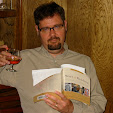“Knowest thou the ordinances of heaven?” (Job 38:33)
This rhetorical question was posed by God to a human. The human’s answer was “I uttered that I understood not; things too wonderful for me, which I knew not.” (Job 42:3)
In Solomon’s wisdom, there is an admonition about speaking: “let not thine heart be hasty to utter any thing before God: for God is in heaven, and thou upon earth: therefore let thy words be few.” (Ecc 5:2).
Questioning is not necessarily a virtue, but it can sometimes be a vice.
So what should one do, when s/he has unanswerable questions…questions that only the Almighty could possibly answer?
When the events of life don’t seem to follow the presupposed patterns, when change comes rushing in like a flood, when faced with the bold assertion, “you have no control,” how should the potential questioner proceed?
Deriving guidance from wise men (Job, Solomon), a tentative answer seems to be: don’t be hasty in your questioning, check your attitude, and if you can…remain quiet.
And remember, “now we see through a glass, darkly”…but there will come a day when the secret things shall be revealed.
This rhetorical question was posed by God to a human. The human’s answer was “I uttered that I understood not; things too wonderful for me, which I knew not.” (Job 42:3)
In Solomon’s wisdom, there is an admonition about speaking: “let not thine heart be hasty to utter any thing before God: for God is in heaven, and thou upon earth: therefore let thy words be few.” (Ecc 5:2).
Questioning is not necessarily a virtue, but it can sometimes be a vice.
So what should one do, when s/he has unanswerable questions…questions that only the Almighty could possibly answer?
When the events of life don’t seem to follow the presupposed patterns, when change comes rushing in like a flood, when faced with the bold assertion, “you have no control,” how should the potential questioner proceed?
Deriving guidance from wise men (Job, Solomon), a tentative answer seems to be: don’t be hasty in your questioning, check your attitude, and if you can…remain quiet.
And remember, “now we see through a glass, darkly”…but there will come a day when the secret things shall be revealed.
+001.jpg)
Comments